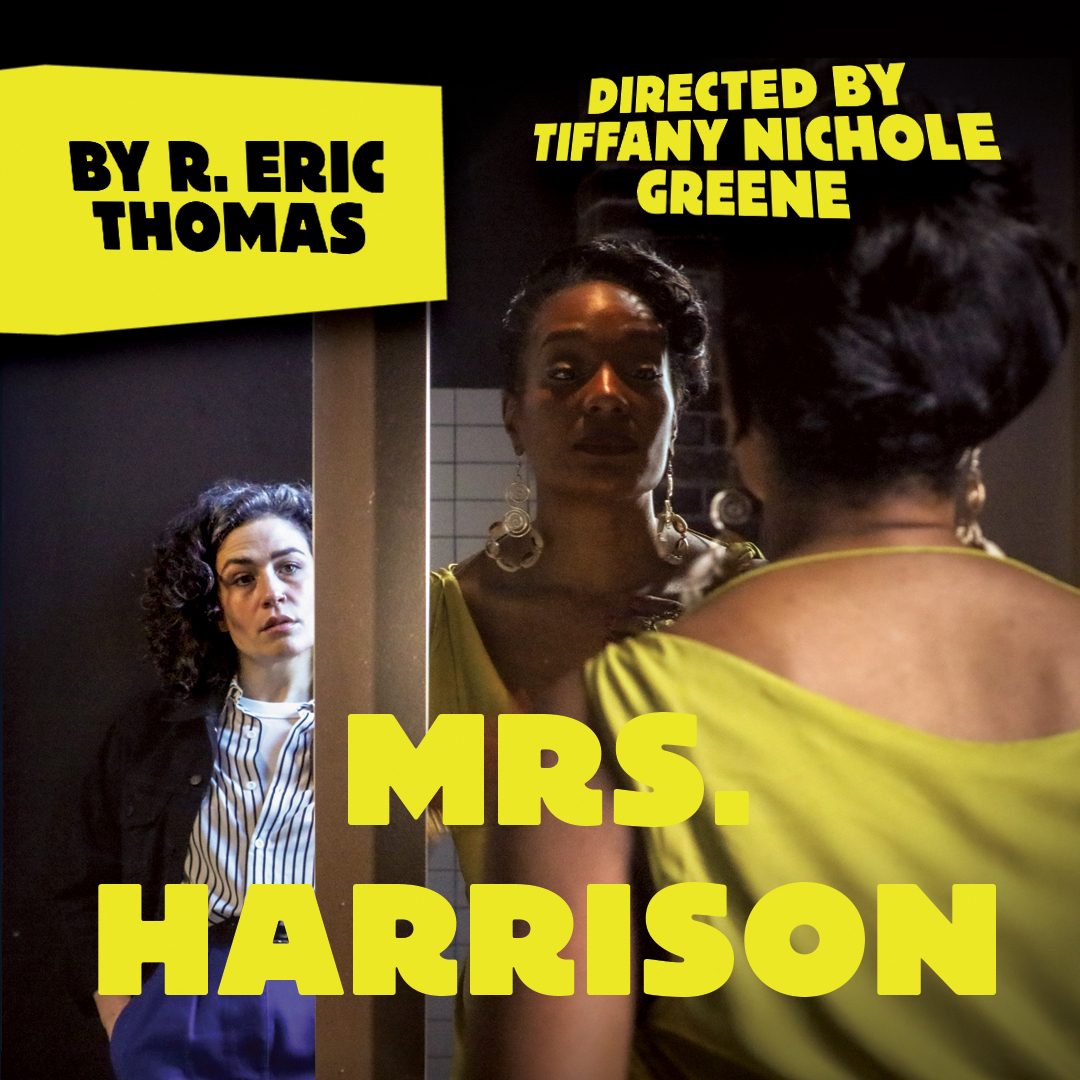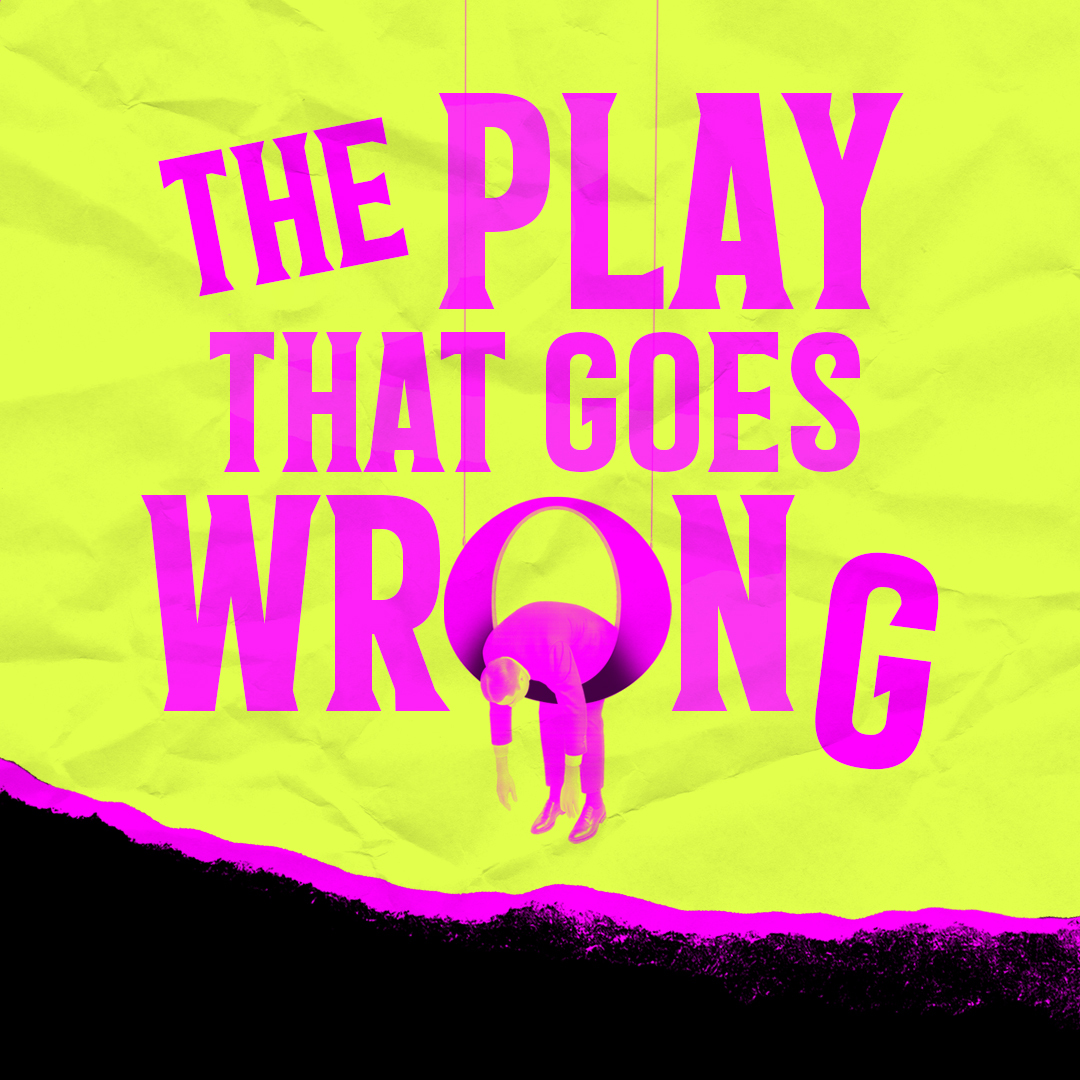A Conversation with Mrs. Harrison Playwright R. Eric Thomas
PCS Literary Manager and Mrs. Harrison Dramaturg Kamilah Bush talked to the show's writer, R. Eric Thomas, about the "universe of possibility" inherent in storytelling, and turning generational trauma into generational hope.

Playwright R. Eric Thomas
Kamilah Bush: How did you arrive at writing Mrs. Harrison?
R. Eric Thomas: There are two frustrated desires at the heart of my play. It came from a place in my life where I was struggling to make headway in playwriting, but I found a lot of opportunity in the storytelling community. I was hearing a lot of "yes" and a lot of "no" at the exact same time. Without giving too much away, there are parts of the story that are rooted in experiences I had with friends growing up. I started writing this around the time I was the age of the characters. I spent a lot of time imagining what I would be able to say to my former classmates if we ran into each other. And one of the best ways to process it is to write a play about it, and so I did.
K.B.: You write across many kinds of media. You are a playwright but also a television writer, a columnist, an essayist, a biographer, a Moth storyteller and a novelist. What draws you to writing, and how do you pick which is the medium for the story you’re trying to tell?
R.E.T: I have my first library card framed, my mother got it for me when I was 3 years old. It is framed next to the first theater production I went to see, which was The Tap Dance Kid, and I remember so distinctly this feeling that stories on stage and in books — or everywhere — open up a universe of possibility for all of us. While my parents were good about reminding us that we could do anything, we were also very aware of the limitations set on us by the world. I grew up in a space where the outside world was telling us we couldn't be anything, and so to discover this other universe of possibility was life changing and life saving. That's always what's drawn me to stories — this idea that's about possibility, about creating another narrative, going back into the root of generational trauma and turning it into generational hope. As for choosing the medium, I'm always listening to character voices and they tell me how it needs to play out. If a character's voice is more interior then it's probably more novelistic, if it's exterior it's maybe theatrical or filmic. If the world is really big and not very flexible, very literal - it's maybe film. For Mrs. Harrison, it is rooted in realism but that realism is very tricky, and so the tenuous realism of the stage felt more able to keep us on our toes in terms of how literal an experience seeing the play could be.
K.B.: In your book of essays, "Here For It: Or, How to Save Your Soul in America; Essays," you write, “Every story, whether truth or fiction, is an invitation to imagination, but even more so, it’s an invitation to empathy.” Is there a particular call to empathy in Mrs. Harrison?
R.E.T: I don’t want to give out any spoilers, so I'm going to walk the tightrope. You don't have to agree with someone to empathize with them. I think that is one of the core tensions of this time, and perhaps any time, and I think that is one of the core tensions of this play. One character wants both empathy and agreement, and the other maybe wants neither, and those things maybe switch. I think that empathy, even more than sympathy, is also about recognizing privilege while trying to dismantle positions of privilege in oneself so that we can be connected at a human level. I don't think that the problem of this play is a failure of empathy, but rather the opportunity of the various transgressions in the play are places where empathy could have changed the outcome.
K.B.: This play, and all of your work, while dealing with serious topics, handles it with great humor— scathing and sometimes uncomfortable humor — but what do you think is the function of laughter in your storytelling?
R.E.T.: Mrs. Harrison stands out amongst a lot of my work in that the humor is sometimes more uncomfortable. One of my first jobs was at a comedy club and I got to watch people put their acts together for years and I got to watch the ways that an audience is electrified by laughter, and I think that's underutilized in theater a lot. I see laughter on a somatic and a soul level as an opener, as a dialate. Where you're laughing, other things can sneak in. In a sort of Chekovian way — laughing through tears or laughing until you cry, crying until you laugh. It allows us to have a much more emotionally rich conversation. Because I'm writing characters that have experienced being othered, I am deeply invested in the idea that our trauma is not the point of the story. Laughter is a reminder that we are in control of our narrative and we are more than the worst thing that ever happened to us. You talk to any comedian and any comedy writer they say that the good stuff comes through pain.
K.B.: Lastly, what’s bringing you joy right now?
R.E.T.: I love theater. I love doing theater. And so much of my early theatrical career was a lot of no's so getting to see theater and make theater is bringing me a lot of joy. We're doing this interview right before thanksgiving and I have bullied my entire family into coming to me and I'm making dinner for everybody and it's the first time my family has gotten together ever because there's now a bunch of kids and that's so exciting! I will either look back with exclamation or rueful 20/20 vision.
K.B.: But it's bringing you joy right now!
R.E.T.: And that's what matters.
K.B.: That’s exactly what matters!
Portland Center Stage is committed to identifying & interrupting instances of racism & all forms of oppression, through the principles of inclusion, diversity, equity, & accessibility (IDEA).












